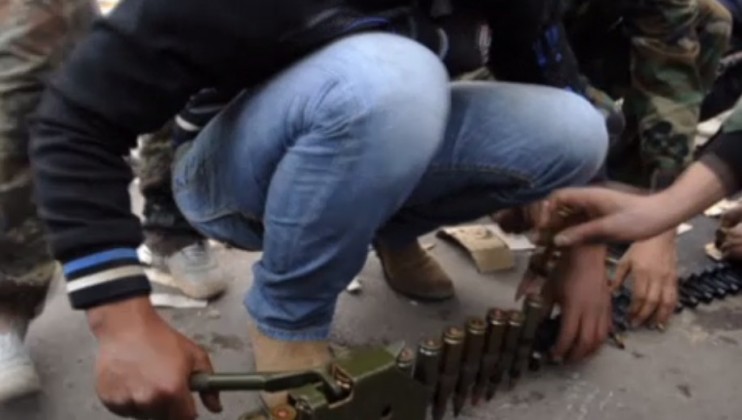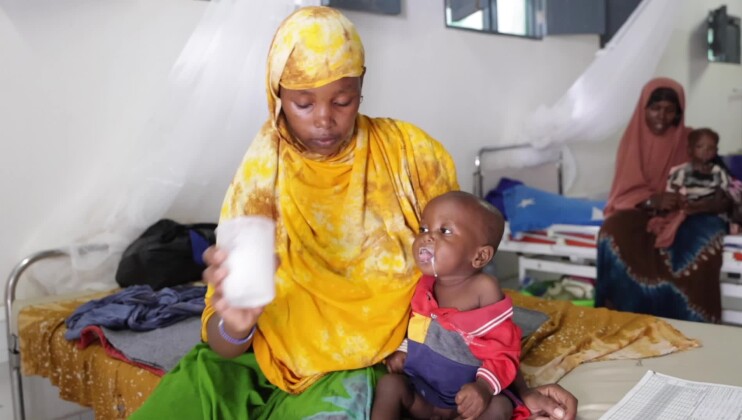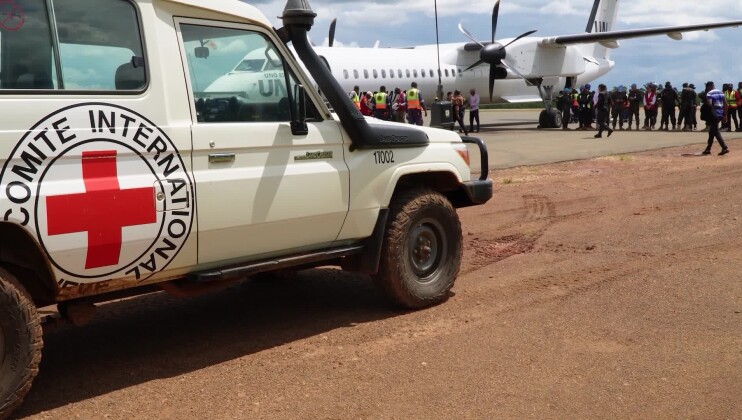ICRC sounds alarm on arms trade

This is a modal window.
At the first conference of States Parties to the Arms Trade Treaty (Cancun, Mexico 24-27 August), the International Committee of Red Cross says the illegal transfer of weapons is rife.
Around the world, hundreds of thousands of civilians are killed, injured or displaced at gunpoint. This is the reality ICRC staff witness around the world. “What we see is an enormous availability of weapons on the ground, to groups, to armies, and these weapons cause enormous suffering,” says ICRC President Peter Maurer. “I have seen it for myself visiting South Sudan, Central African Republic and Yemen just a couple of days ago what kind of suffering this causes. As difficult as it is to import medicine, medical goods and medical equipment, it's much easier in those conflicts to import arms. This is a situation we cannot accept.”
Arms transfers in conflict- or violence-affected areas are prolonging conflicts; threatening humanitarian assistance; and being used for direct attacks on hospitals, schools and people’s homes.
The Arms Trade Treaty came into force in December 2014 and was signed by 59 states and ratified by 72 states. It covers everything from small arms and ammunition to battle tanks, combat aircraft and warships.
In the Cancun conference, governments will decide on the mechanisms needed to implement the agreement. The ICRC is calling for a high level of transparency in the trade and for robust national control systems to curb the availability of weapons and stop their diversion to illicit markets.
“We are encouraged by the fact that states committed to the obligations in the arms trade treaty not to transfer arms to those in violation of human rights and international humanitarian law,” says President Maurer, “but commitments must be followed by concrete action. States have to take their political commitments seriously. Acts have to follow commitments.”
Shotlist
Location: Various
Length: 4:27
Format: Mov H264 HD
Sound: English
ICRC ref: AV352N
Date: Various
Copyright: ICRC access all
0:00 Fighters in Libya
0:25 Ammunitions in Congo Brazzaville
0:31 ICRC president seeing damage in Yemen
1:08 SOUNDBITE Peter Maurer, President of International Committee of the Red Cross (in English)
“What we see is an enormous availability of weapons to actors on the grounds, to groups, to armies, and these weapons cause enormous suffering because of a disrespect for international humanitarian law. People are dying; people are seriously wounded; hospitals are attacked; residential areas are attacked; schools are attacked. So arms cause an enormous amount of suffering despite the fact that states committed to restrict the availability and the transfer to those groups who do not respect international humanitarian law. I have seen it for myself visiting South Sudan, Central African Republic, Yemen just a couple of days ago what kind of suffering this causes. And sometimes it's paradoxical because as difficult as it is to import medicine, medical goods and medical equipment it's much easier in those conflicts to import arms. This is a situation that we cannot accept.”
2:07 People displaced in Central African Republic
2:40 Wounded arriving in Kandahar hospital, Afghanistan
3:01 Displaced people in Leer, South Sudan
3:28 ICRC evacuating the wounded in Leer, South Sudan
3:41 SOUNDBITE Peter Maurer, President of International Committee of the Red Cross (in English)
We are encouraged by the fact that states committed to the obligations in the arms trade treaty not to transfer arms to those who are in violation of human rights and international humanitarian law. But commitments must be followed by concrete action. At the present moment the discrepancy is still striking between the political commitments in the arms trade treaty and the actual behavior and ease with which arms are transferred to actors who obviously do not respect international law. We need to close the gap and states have to take their political commitments seriously. Acts have to follow commitments.
END 4:27



